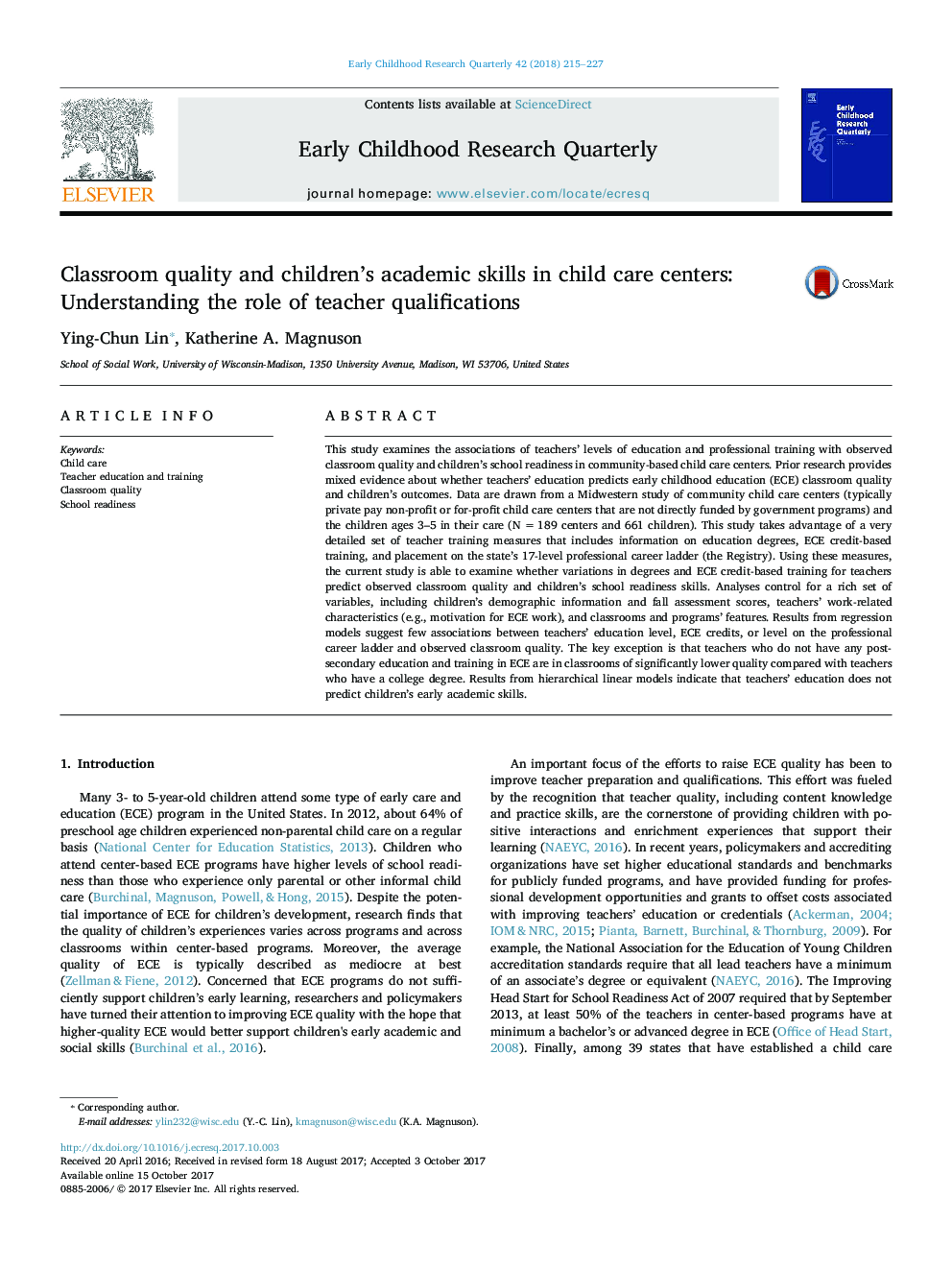| کد مقاله | کد نشریه | سال انتشار | مقاله انگلیسی | نسخه تمام متن |
|---|---|---|---|---|
| 4938175 | 1434713 | 2018 | 13 صفحه PDF | دانلود رایگان |
- This study examined the associations between teacher qualifications, classroom quality and child's outcomes in the community child care centers.
- Teacher qualifications were measured by degree, ECE credits, and state's career level.
- Teachers without a college degree and ECE credits had lower classroom quality.
- Having a BA degree regardless of ECE training did not predict higher classroom quality.
- Teacher qualifications were not associated with children's outcomes.
This study examines the associations of teachers' levels of education and professional training with observed classroom quality and children's school readiness in community-based child care centers. Prior research provides mixed evidence about whether teachers' education predicts early childhood education (ECE) classroom quality and children's outcomes. Data are drawn from a Midwestern study of community child care centers (typically private pay non-profit or for-profit child care centers that are not directly funded by government programs) and the children ages 3-5 in their care (NÂ =Â 189 centers and 661 children). This study takes advantage of a very detailed set of teacher training measures that includes information on education degrees, ECE credit-based training, and placement on the state's 17-level professional career ladder (the Registry). Using these measures, the current study is able to examine whether variations in degrees and ECE credit-based training for teachers predict observed classroom quality and children's school readiness skills. Analyses control for a rich set of variables, including children's demographic information and fall assessment scores, teachers' work-related characteristics (e.g., motivation for ECE work), and classrooms and programs' features. Results from regression models suggest few associations between teachers' education level, ECE credits, or level on the professional career ladder and observed classroom quality. The key exception is that teachers who do not have any postsecondary education and training in ECE are in classrooms of significantly lower quality compared with teachers who have a college degree. Results from hierarchical linear models indicate that teachers' education does not predict children's early academic skills.
Journal: Early Childhood Research Quarterly - Volume 42, 1st Quarter 2018, Pages 215-227
